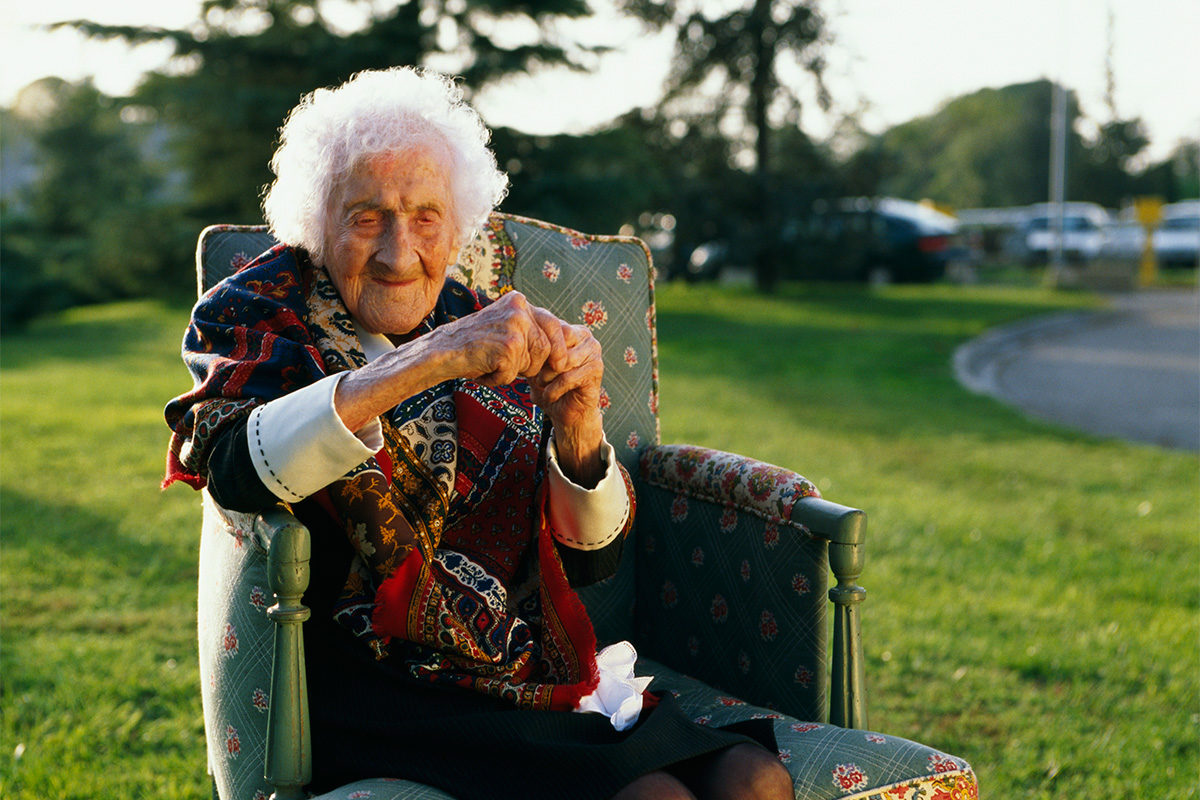
© Pascal Parrot/GettyJeanne Calment lived to be 122
If you want to break the world record for human longevity, the person you need to beat is Frenchwoman
Jeanne Calment, who died in 1997 aged 122 years and 5 months. As her record has stood for 21 years, does it represent a limit for human lifespan, or will it be eclipsed?
Dislodging Calment is not an easy prospect. When you get really old - above 105 - your
odds of making it from one birthday to the next are a little less than evens. How often have you tossed a coin and come up heads 17 times in a row? And, apparently, the odds could be even worse than this. For the average person past puberty, the risk of dying doubles with every eight additional candles on the birthday cake.
The good news - which comes from an
analysis just published in Science that was based on demographic records from Italy - is that the inexorable rise in death rate with age appears to reach a plateau around 105 and remain level thereafter. The existence of a plateau could suggest that lifespan has no strict limit, and the authors conclude that if a limit does exist, we have not yet seen it.
All this is controversial. The existence of extreme-age mortality plateaus
has been claimed before, and the new study, conducted by a highly respected team, supports this case. Yet what such plateaus signify remains an enigma.
Ageing appears overwhelmingly likely to be driven by the build-up of damage in the body's cells and organs, so it would be surprising if there really is a stage when things stop getting worse.
Cheating deathThis is why there are plenty of alternative explanations for mortality plateaus, including the possibility that they are illusory, appearing out of the unavoidably sparse data. Or they could be a
statistical artefact generated by differences in robustness in the population. Only the most robust make it through to very high ages, and among these, only the very toughest keep going year after year. So even if everyone gets a bit frailer each year, the average robustness of the dwindling subset of survivors might for some time appear steady.
If a plateau in late-life mortality does indeed exist, how might it help us address that most enduring puzzle: is there a limit to how long a human could live? Here, the answer is also far from clear.
Everything we are discovering about the biology of ageing makes it highly implausible that the body has some inbuilt biological program that acts specifically to bring life to a close at a set age. Indeed, the body is programmed for survival, not death, and it may be merely the evolutionary shortcomings of our survival genes that make us age and die.
The sober truth is that what happens to us in extreme old age is something in which our genes have little or no vested interest. Yet in this is also an opportunity. Ageing is malleable precisely because our genes leave us to fall apart in our own good time. If we can only discover better ways to combat the build-up of damage and enhance our potential for survival, then there is every reason to expect that Calment's record might be ours to break.
How, and how soon, we do not yet know. But it seems reasonable to anticipate that one of the ways forward is to work out what causes mortality plateaus by taking them seriously and considering their deeper meaning. This latest research won't settle the debate on lifespan limits, but hopefully it will spark a wider search for such meaning.
Comment: Related: